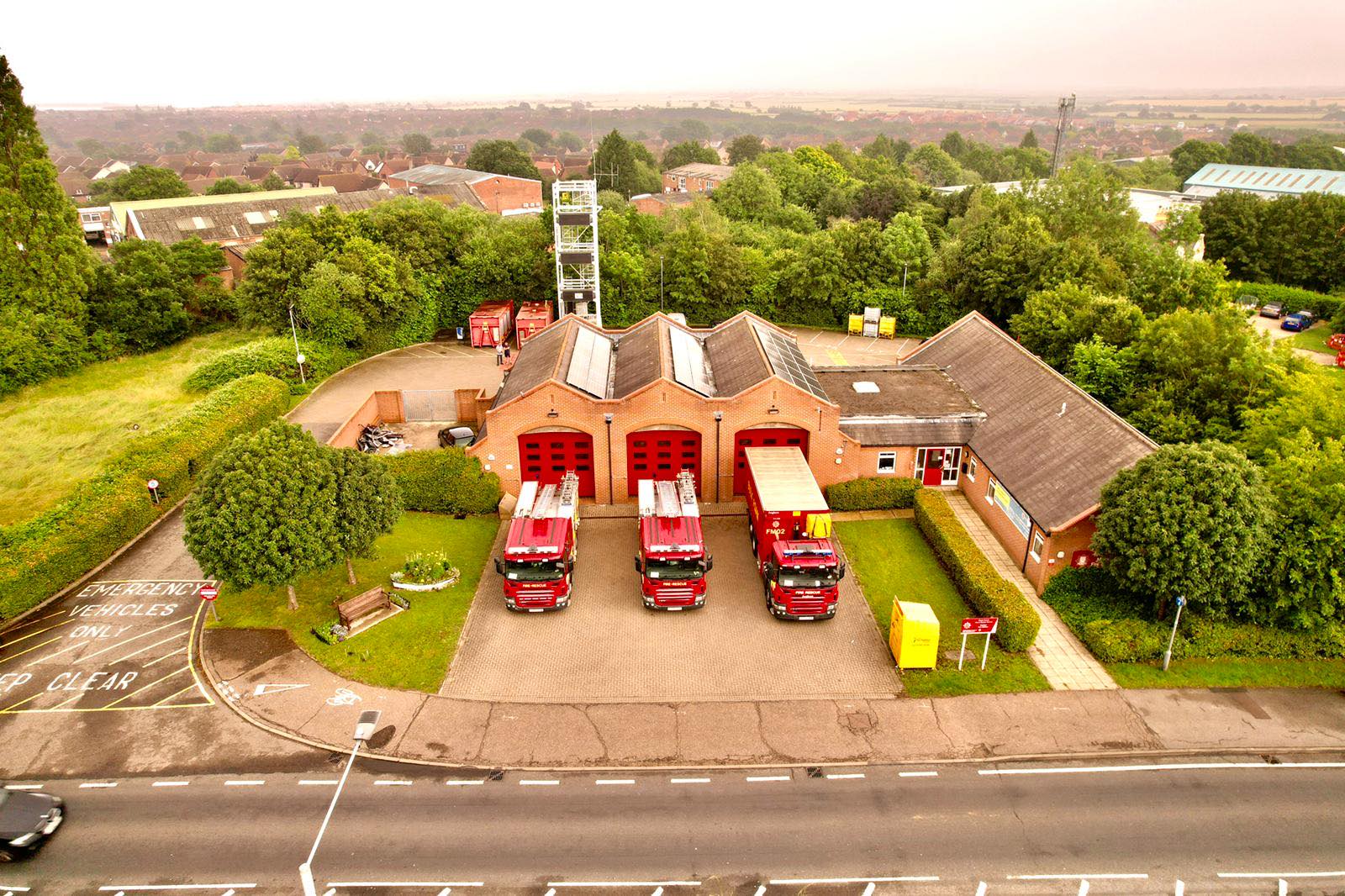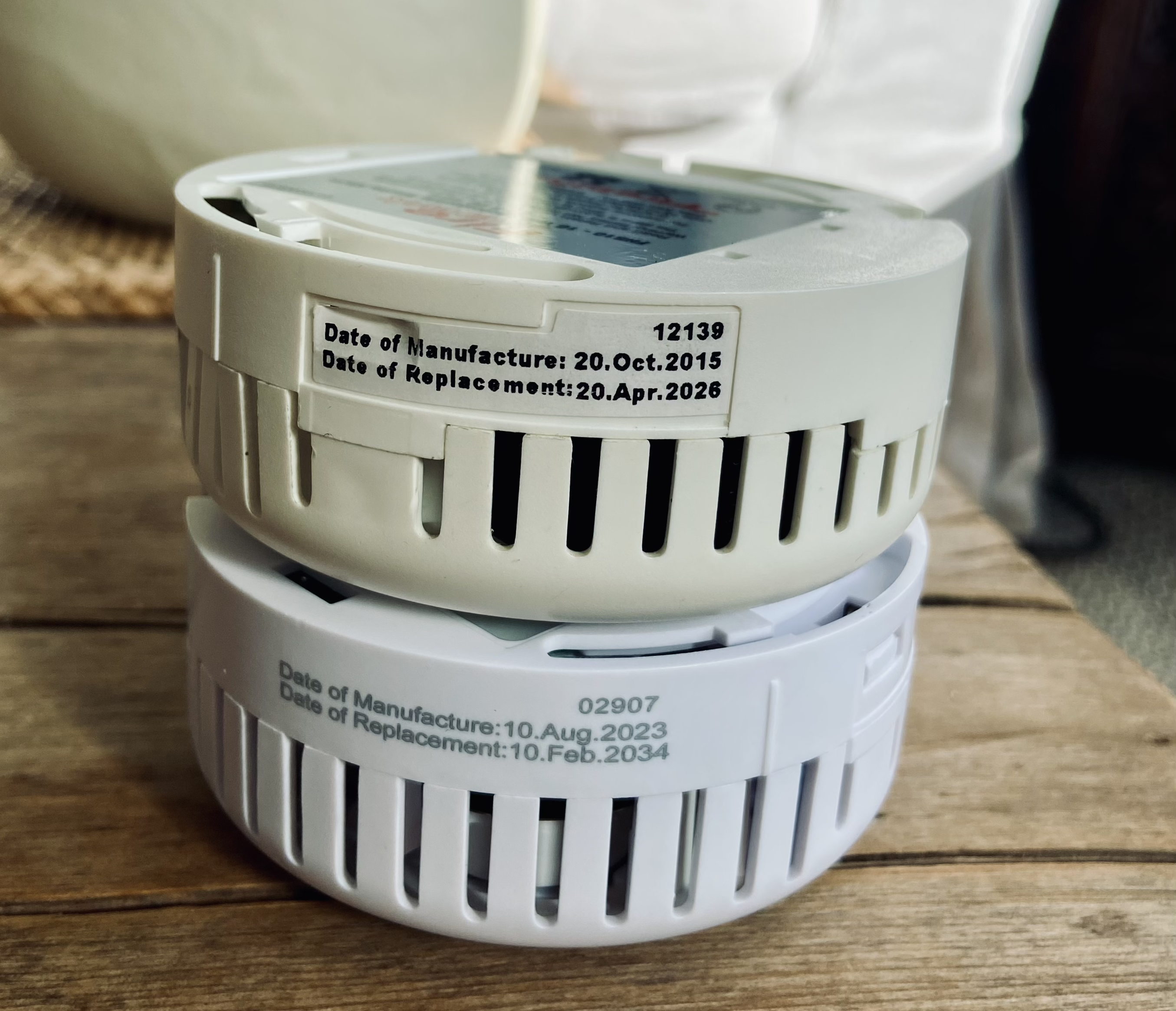The Ups & Downs P.5
All four articles in this series have featured groups of senior Essex fire officers who experienced either triumph or disaster whilst working for the Chelmsford Borough Council, a council which by no means was slow to admonish their superintendents when it was felt necessary to do so. This article will focus solely on one man only who throughout his career with the Chelmsford Borough Fire Brigade experienced both extremes exemplifying Kipling’s immortal word; ‘If you can meet with Triumph and Disaster and treat those two imposters just the same.’
Albert. E. Murkin was a farmer’s son born in 1873 at Shoeburyness. By 1891 he resided, with his family, on a farm at South Hanningfield, Chelmsford. In 1901, now a married man, living at Godley Terrace in Chelmsford, he was employed as a driver, presumably of horses. He joined the fire brigade in 1907 and by 1908 he was station officer of Chelmsford’s “new brigade”, the “old brigade” having resigned en masse the previous year. Its new superintendent was James Diaper who was not without controversy himself. Murkin was not slow to tangle with Diaper as he made a complaint against him for the non-payment of “special duty payments” in that year. In 1908 he was still in Chelmsford, with his wife, three children – two sons and a daughter - and his widowed mother residing at Mill Road. He was now a qualified agricultural engineer with skills that no doubt stood him in very good stead for his duties and engineering responsibilities associated with the Chelmsford Borough Fire Brigade (CBFB). In 1914 he was appointed full-time superintendent of the Brigade; with this came a salary and accommodation for himself, and his family at the Market Road fire station. Murkin started his role in very challenging circumstances as the Great War coincided with his appointment. Both he and his men had now not only to react to everyday incidents but to the trials and tribulations thrown up by the Great War.
His time as superintendent was by no means without controversy exemplified on 29 July 1915 when the Wells and Perry Brewery, Duke Street, experienced a serious stable fire. The Brigade arrived promptly from the nearby fire station but without any senior officers present, as they were out at the time. Firefighting was held up for 30 minutes as the closest hydrant had very little water pressure. When Murkin arrived he ordered the engine to go to the hydrant at the corner of Market Road but there was no adapter on the machine to operate the hydrant. Water was eventually obtained but by then the stables were beyond saving, much to the displeasure of Messrs Wells and Perry!
This lack of preparedness led to a number of changes in the Brigade’s operating procedures, namely: the regular inspection of all standpipes, appliances to be inspected regularly, an inventory of equipment to be kept on all appliances, maps of the location of hydrants to be produced including details of their size and distance from walls, painted hydrant plates to be in situ, in the absence of the Chief Officer the Superintendent must be at the fire station or close by, failing that the Station Officer must take charge.
Another embarrassing situation which was directly associated with the Great War occurred on evening of 29 September 1916. A haystack on Lawn Lane, Springfield took light. Springfield was not within the Borough boundaries, and as such the Brigade was not compelled to attend the blaze. However there was a preliminary air raid warning on at the time and by 8.30pm the light was fading fast. Essex Police – based at Springfield - was concerned that the fire would act as a beacon for enemy aircraft. The superintendent of police called the Market Road fire station and instructed Station Officer Dixon, who answered the call, to send an appliance to the fire post-haste. A small crew on Steamer No 2 was dispatched. In the meantime soldiers tried to control the fire until the Brigade arrived. Superintendent Murkin became aware of the callout and quickly realised the appliance had left without an engineer to operate the pump as Engineer Newman was out. He immediately detailed Auxiliary Fireman Byatt (later Engineer Byatt) to get on his bike and cycle up Springfield Road to Lawn Lane in an attempt to intercept the horse drawn steamer. Newman appeared a few minutes later and he
1
too was ordered to get on his bike and catch Byatt up. Both were stopped by the police for cycling with their lights on and were told to get off their velocipedes and walk! Byatt eventually arrived at the fire and managed to get the steamer working but after about 5 minutes pumping, it conked out. The Army would not allocate Byatt lighting to permit him to affect a repair, which naturally made the situation much worse. Newman, the qualified engineer, arrived much too late to be of any use at all. The sorry party turned round and returned the Market Road with their tails between their legs. The fire engine’s boiler was found to be in such a bad state of repair, it was necessary to have it completely retubed the following day at a cost of £18 10s 4d. Luckily for Murkin no blame was attributed for this erroneous incident. Ironically Murkin’s predecessor James Diaper was criticised for allegedly not maintaining Steamer No 2 properly in 1909.
These two embarrassing incidents perhaps indicate that Murkin was not up to the job, not so! Wartime constraints and privations had to be mitigated by the Borough’s fire brigade committee and implemented by Murkin which he proved more than able to do. The initial challenge was the lack of firemen available as a number of experienced colleagues had volunteered for the armed services. To be exact the shortage of manpower quickly resulted in an effective and innovative strategy whereby a well-trained and enthusiastic group of fire volunteers was recruited to be used exclusively during air raids and not at routine fires. The establishment of a group of volunteer firemen, overseen by Murkin, ensured that the Brigade staved off manpower shortages that blighted other fire brigades, including the London Fire Brigade. Extra equipment was also purchased to cope with the possibility of multiple fires brought about by air raids.
It was not only men that were in short supply. By 1917 there was a marked shortage of horses and horse feed which naturally compromised the Brigade’s ability to run their two horse drawn steamers effectively. To add fuel to the fire on 21 September 1917, Messrs. Holland gave notice that they wished to terminate the horsing contract from 21 March 1918. This prompted the committee to look into the purchase of a motor fire engine, or the cost of a suitable motor to pull the steamers and also to look into the possibility of renegotiating the horsing contract with Messrs Holland. Furthermore, the borough was not necessarily unwilling to explore the possibility of providing its own horses for its fire brigade. After much contemplation and a degree of disagreement, beyond the scope of this article, a powerful Panhard motorcar chassis was purchased from Roslin’s Garage on Springfield Road, and which with some imagination, was converted into a very workmanlike fire engine overseen by Murkin.
The Chelmsford Borough Fire Brigade on their converted Panhard fire engine c.1918. Superintendent Albert Murkin thought to be in the passenger’s seat. (EFM Archive)
This was the start of motorisation of the Brigade which continued under Murkin’s stewardship well into the 1920s with the addition of a converted Mercedes motorcar in 1923, which incidentally caused some anger amongst councillors that a German machine should be seen on the streets of Chelmsford. A brand new
2
Leyland fire appliance was delivered to the Brigade on 18 March 1927, the year when the Brigade’s last steamer was finally disposed of.
Another brand new appliance was added to the fleet in 1930 in the form of a Morris Commercial pump, to replace the aging Panhard. Murkin was not slow to embrace new methods of tackling specific types of fire. At that time petrol pumps were increasingly being installed in local garages. Murkin, being aware of this, duly submitted a request for a chemical extinguisher and trailer to combat the growing threat of petrol fires at these garages, water being useless in such fires. A powerful Renault saloon was subsequently converted in 1928 to a chemical appliance to be used at such fires, and elsewhere, and to accommodate the burgeoning fleet the Market Road fire station was significantly altered.
Murkin conducted himself with great credit at a serious fire which occurred at Brown’s Timber Yard, Navigation Road at 7.35pm on the evening of Saturday 29th October 1921. The blaze was whipped up by strong winds which not only devastated the premises but threatened a number of nearby dwellings. The Brigade ‘worked like Trojans’ to subdue the blaze and in the process Murkin was injured when he fell into a pit underneath a sawing machine. Undeterred he, Horseman Hill DCM and others risked their lives to rescue a number of terrified horses from the building. In January 1923 the RSPCA awarded their silver medal to Supt Murkin and a bronze medal to Brown’s employee Horseman Hill DCM, for their bravery at the fire. The awards, though deserved, were not without criticism, as a number of people felt others should have received bravery awards for their work and that Hill who ‘showed marvellous concern for his animals’, should have received more than a bronze medal.
3
In October 1924 Superintendent Murkin, a stalwart of the Brigade, understandably become slightly disillusioned with his salary. After all he was now expected not only to supervise the Brigade but also to superintend and clean the nearby market, as the previous incumbent had been promoted. His ever sympathetic employer kindly resolved to increase his salary by 2/6 (12 p). The following July he tried his hand once more, this time his request was turned down flat!
Despite Murkin’s undoubted bravery and farsightedness he could not help stirring the wroth of the Borough Council’s Fire Brigade Committee (FBC). On 25 September 1927 a fire occurred at Friars Garage, Moulsham Street, and by all accounts the blaze was not dealt with effectively. This led to the censuring of Superintendent Murkin. On arrival at the fire it was alleged that water was extracted directly from the mains, via a standpipe, as Murkin felt that the river was too low to take water from it. It was the firm opinion of the FBC that he should have taken a fire engine directly to the river to extract water from the deepest part which was located close to the iron bridge on London Road. The Committee was equally convinced that he had made an error of judgement and was not slow to inform him so. As a result of this error of judgement a number of new measures were drawn up to improve the operational efficiency of the Brigade. It was stipulated that, as far as possible, river water should be used to fight fires. It was also made plain that it was the Superintendent’s duty to make certain a ‘proper’ fire engine and appliances were sent to any outbreak of fire. It was also to supply refreshments for members of the Brigade at fires. Further, and rather disdainfully, it was spelt out to Superintendent Murkin that he was responsible for the maintenance of discipline, and that he clearly understood that in the event of a refusal to comply with orders, he had the power to suspend any member of the Brigade, pending an inquiry by the FBC. To rub further quantities of salt into the wound an amendment was tabled to place the responsibility of running the Brigade on a new whole-time officer who had had ‘professional’ training. Although the motion was defeated by a margin of four votes to seven, it effectively indicated a vote of no confidence in the Superintendent’s ability to run the Brigade. He must have been somewhat crestfallen as a result. Given the range of these new measures one might be forgiven for thinking that other problems of a more historic and serious nature existed in the Brigade which extended beyond water extraction.
On Monday 4 November 1929 Murkin received the news that his son Sidney aged 31, a postman and Great War veteran serving in the 5th Battalion the Essex Regiment, had been knocked off his bicycle by a motorcyclist near the Shire Hall. His skull was fractured and after being taken to his Mildmay Road home was conveyed to hospital where he died. He left a widow and two young children.
On Friday 3 January 1930 the Chelmsford Chronicle reported yet another rather humiliating incident. The Council had been informed by the Fire Brigade that two fire engines had caught fire due to friction setting oil alight. Both the CBFB’s Mercedes and Renault had ignited returning from a drill at Margaretting. Fortunately the damage was not serious and was soon rectified. The Renault got away with it unscathed but the Mercedes was repaired by Mr C Boreham at a cost of £9 5s. It was clear that there were maintenance issues with the two appliances concerned and given Murkin was a qualified engineer it was surprising that this embarrassing incident happened at all.
In 1932 Murkin reached the statutory retirement age for professional fire officer – he was 60 and must retire unless there was a compelling reason to extend his service. By unfortunate coincidence the Chief Officer and Borough Engineer Mr Ernest Miles died in that year, aged 52. Consequently it was proposed that Murkin’s retirement should be postponed for three months, from 31 July, 1932 and applications then be invited by advertisement for a professional superintendent. Some councillors felt that Superintendent Murkin was an excellent and longstanding servant of the Brigade and could see no reason why he shouldn’t continue in that role, after all “he was in the prime of life and quite fit to carry on” and “despite criticisms, the reports generally are in praise of the Fire Brigade”. The proposal went to a vote and it would seem it met with little success and he was compelled to retire. Notwithstanding that there is no evidence to suggest that Murkin was anything but a competent and popular superintendent who doggedly stuck to his guns unfazed by criticism or, conversely, praise in the true spirit of Kipling. Albert Edward Murkin passed away at St John’s Hospital,
4
Chelmsford, on 31 December 1950. He was laid to rest in the London Road Non Conformist Cemetery, Chelmsford.
This series of articles has attempted to highlight long forgotten chief officers and superintendents of pre-war Essex fire brigades all of whom were highly motivated dedicated and honourable men who led bands of equally dedicated and honourable firemen. Sadly a number of them fell victim to micro politics which proved to be their nemesis but many soldiered on for many years at the head of their respective fire brigade’s contributions which justifiable should be recognised.


